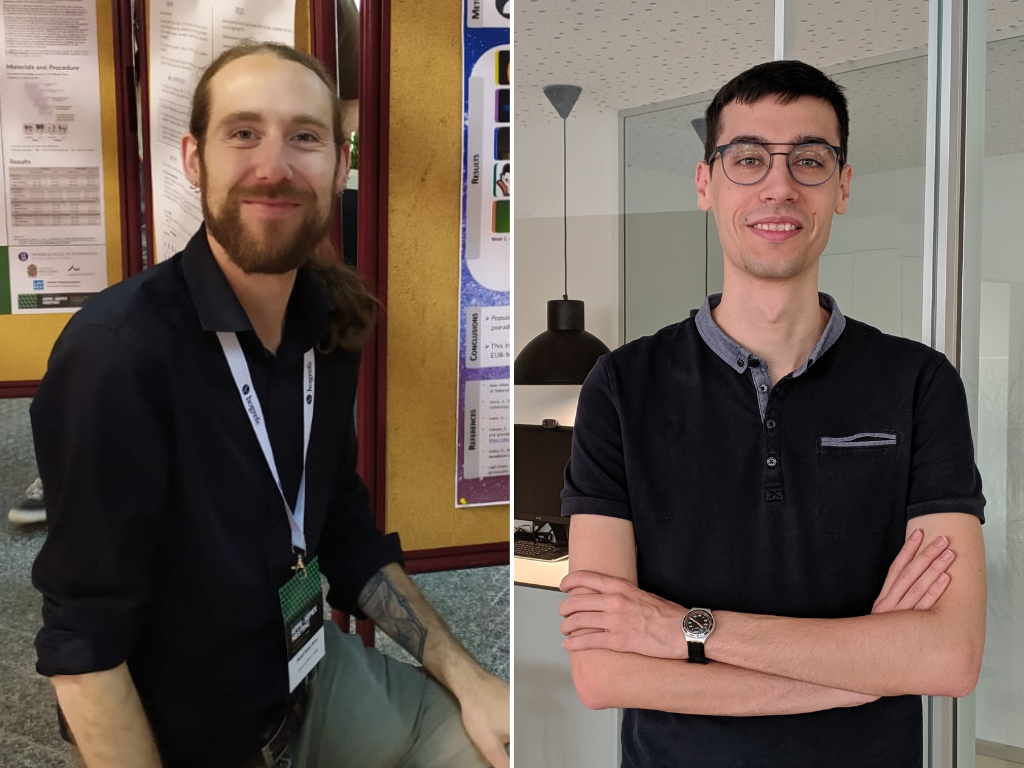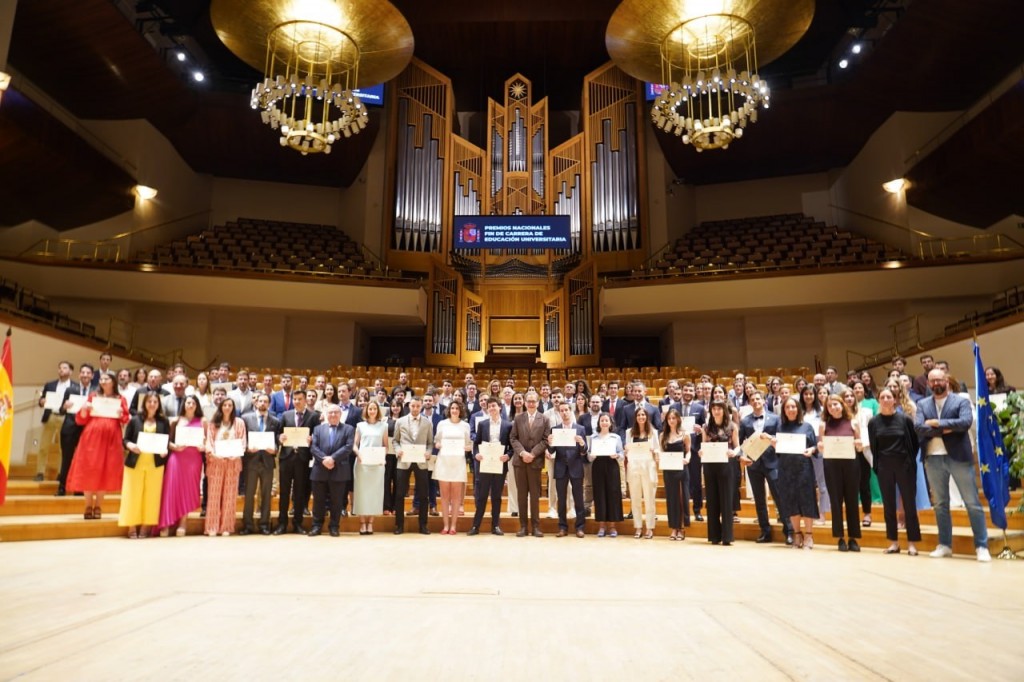01/08/2023
URV students Daniel Huete and Jaume Ferré, distinguished by the Ministry of Universities as among the most brilliant in Spain
They have received the second National Graduation Award in Psychology and Mechanical Engineering, respectively

They have received the second National Graduation Award in Psychology and Mechanical Engineering, respectively
Daniel Huete Pérez and Jaume Ferré Bigorra have received the second National Graduation Award, which the Ministry of Universities has awarded this year to the students who started their degree programmes in 2016-17 to recognise the most brilliant students in each of the degrees.
Daniel Huete, who is currently a doctoral student at the URV in the Psycholinguistics Research Group, did his degree in psychology motivated by the desire to understand the mind and human behaviour. At the URV he discovered all the areas in which psychology plays a major role, not only clinical psychology, but also basic and experimental psychology, legal and forensic psychology, educational psychology, organisational psychology, psychobiology and neuropsychology, among others. But the most important contribution in his opinion was “the promotion of critical thinking and the evaluation of empirical evidence, which is a very necessary cross-disciplinary competence in these times of post-truth and disinformation.”
This area of science interested him so much that after doing the Master’s Degree in Ageing and Health and working for two years outside academia, he was given a pre-doctoral contract to research into “why people believe in things that have no solid empirical basis, such as paranormal events, pseudoscience and conspiracy theories. We are exploring whether there are any differential patterns in terms of language processing as a function of the degree of belief in these topics.”
For him, the National Graduation Award in Psychology is a form of recognition of “the effort and dedication that an academic record requires”, but he stresses that chance is also important: “we cannot attribute success only to effort, ability or any other internal variable because there are many other conditioning factors beyond our control that also influence academic performance, such as being able to devote myself solely to studying and not having to work, not having family responsibilities and having a space where I can study in peace and quiet. Personal circumstances are critical and we cannot ignore them or compare ourselves without taking them into account. Likewise, aware of the external conditioning factors and the support needed to achieve good performance, Daniel Huete also points out the need to improve the conditions of university staff and is grateful for the support he has received from researchers from the URV and other universities who work with him.

Jaume Ferré also continued with an academic career after finishing his bachelor’s degree in Mechanical Engineering at the Rovira i Virgili University. He took the Master’s Degree in Industrial Engineering at the UPC and started his PhD, but decided to redirect his professional path towards industry. He is currently working in the fluid systems department of Westinghouse Electric, where he is involved in the design of an advanced nuclear reactor of lower cost and less capacity than the existing ones to start up a new power plant in the United States.
He says that the Bachelor’s Degree in Mechanical Engineering provided him with a solid base of technical knowledge and, at the same time, allowed him to develop the skills he needed for the world of work, such as problem solving, critical thinking and teamwork, which have been “fundamental” for his professional development.
He highlights three factors. Firstly, “the wide range of possibilities of the degree, which enables you to work in any field that requires an understanding of thermodynamics, materials and fluid mechanics or system dynamics.” Secondly, the combination of theory and practice: “From theory classes and problem solving to laboratory sessions and subjects such as the final project, where we could put into practice everything we had learned.” And finally, the teaching staff: “I had very good lecturers. They had a lot of knowledge but also took a great deal of interest in our learning.”
Winning the second National Graduation Award in mechanical engineering is for him a reward for his efforts and “for not being satisfied with results that were merely acceptable,” but for going further in his learning.
